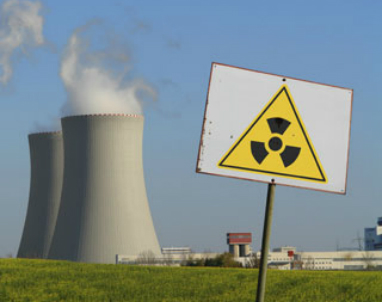
By Joseph Hammond
An Israeli biotech firm is developing a new treatment for radiation sickness that could be deployed rapidly in the aftermath of a nuclear explosion or accident.
“Now is the time for the global community to improve its nuclear emergency preparedness, as geopolitical instability and threats of nuclear warfare are rising,” said Yaky Yanay president and CEO of Pluri, a cell-based technology company.
Pluri announced that it has signed a three-year $4.2 million contract with the US National Institute of Allergy and Infectious Diseases (NIAID), in collaboration with the US Department of Defense’s Armed Forces Radiobiology Research Institute (AFRRI) to further advance the development of its PLX-R18 cell therapy.
The PXL-R18 cell therapy is a potential novel treatment for Hematopoietic Acute Radiation Syndrome (H-ARS). H-ARS is a deadly disease that can result from nuclear disasters and radiation exposure.
The contract was signed on July 11 and the DoD in light of recent geo-political events has reinforced the need to better prepare for nuclear disasters, such as seeking new medical treatments that are more cost-efficient and scalable.

”Pluri’s collaboration with the US government is a significant step toward delivering a scalable, cost-effective treatment for acute radiation syndrome that will benefit nations around the world that are vulnerable to a nuclear attack or accident,” said Yanay.
With the war in Ukraine and other conflicts around the world, many countries are reconsidering their response to the unthinkable – a nuclear war. The conflict has revived interest in stockpiling and other civil defence efforts in case of radiological or nuclear attacks.
Russian forces captured the Chernobyl Nuclear Power Plant early in the conflict. The facility was built in the 1970s and was the site of the world’s worst civil nuclear accident in 1986. As a result, much of the surrounding area remains heavily contaminated with radiation. Efforts to decommission the nuclear power plant have been ongoing since 2015.
Many Russian soldiers involved in the occupation of the area suffered radiation sickness and at least one soldier died in 2022 as a result of the radiation in the area.
More recently, other Russian soldiers have fallen ill from digging trenches in contaminated areas and through fishing for contaminated fish.
Earlier this year Ukrainian sources reported that some Russian soldiers continued to have fits of vomiting and experienced blisters after digging trenches in heavily contaminated areas near Chernobyl – symptoms of radiation sickness.
Pluri has developed a potentially innovative treatment method for this ailment. The treatment called PLX-R19 cell therapy helps prevent bone marrow degradation due to exposure to radiation.
“If successfully validated, our novel PLX-R18 cell therapy will serve as a critical medical countermeasure that is currently missing from the market,” the company said.
The plans are to develop the treatment for possible deployment to the US Strategic National Stockpile which is a federal program to pre-position potentially crucial medical supplies.
Such partnerships between the Pentagon and a foreign company are rare. The partnership suggests how changing geopolitics have changed the calculus for both private companies and governments.
Thus far most countermeasures for radiation sickness have been expensive and logistically challenging to deploy in a mass exposure event. The new research from Pluri serves to suggest a way forward in combating the problem.








